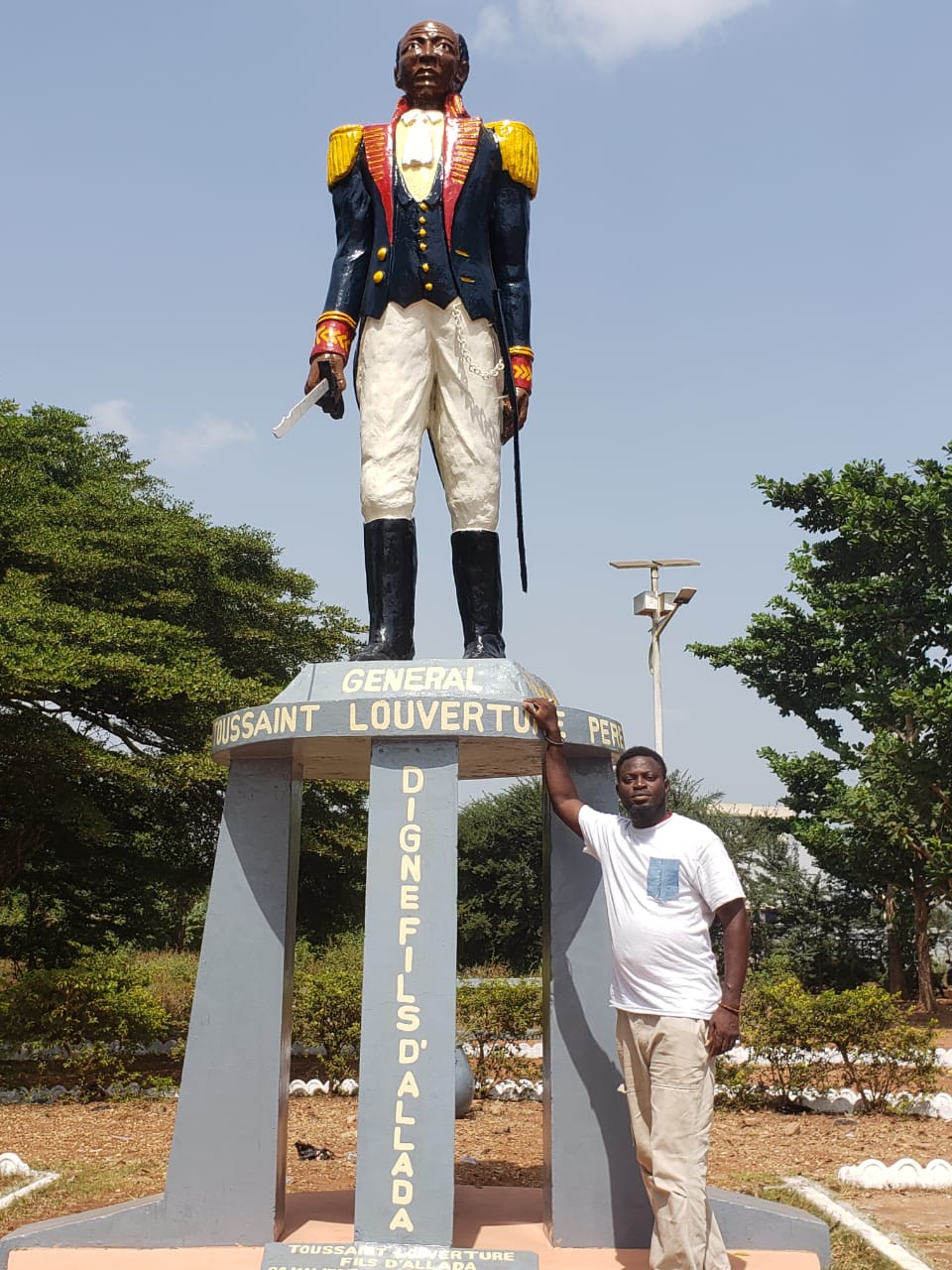WHY PEOPLE HARDLY DISCUSS THE TRAN SAHARAN ENSLAVE TRADE By Anago James Akeem Osho anago.tourism@gmail.com
A woman and about six children and a European male
visited the museum. ‘’Hello madam’’, I greeted her and she responded by saying ‘’How
are you Anago? Quite a while and how have you been?’’.
Another smooth Jeep parked behind her car and she
said, ‘’I brought my visitor to you. He wants to learn about the Tran Atlantic slave
trade. I told him that you are a reincarnated slave and the right person for
the topic”.
‘’Thank you madam for the compliment’’ I responded.
About three more people joined the tour group. I noticed
among the other group a man whom I later discovered to be an African American.
He did his DNA and traced his root to Yoruba land, and Ibadan precisely.
The people in this group were very knowledgeable. They
came with a purpose and know a lot about African history.
The African policy makers should make it compulsory
that schools, especially both elementary and high school should learn their
history. It seems people of African origin in Diaspora are more keen and
passionate to learn about their African connection while most of those at home in
the motherland seem not to be really keen. Some people argue that this notion is
not true but a quick survey will reveal the truth without much argument.
The European visitor brought to me by Madam Hajia CareGiver
was really interested in seeing antiques as evidence of the slave trade. On the
other hand, the African American who traced his root to Yoruba land was
interested in the Trans Saharan slave trade. He wants to know the extent of
Arabian involvement in the trade and I was quick to mention that the Arabs were
the controllers and organizers of the Saharan slave trade which lasted for more
than a thousand year.
I mentioned that the Saharan enslave trade has nothing
to do with Islam as a religion. People only use religion to justify their
deeds, either good or bad. The Arabian culture should be understood because it
is not the same as Islamic culture. This is the reason why an African American,
Afro Brazilian or Jamaican can be a Muslim and practice the religion despite
the differences in culture and environment.
Rilwan, the African American was quick to point that
people hardly discussed about the Tran Saharan enslave trade and I said ‘’Yes’’! But
there is a reason for that.
On the tour I mentioned that when the Europeans first
came to West Africa, they tried to use violence to achieve their aim of carting
away people as slaves. They succeeded in some places but generally, it did not
work.
As early as 1450, the Europeans realized that it was
impossible for them to forcefully enslave the people, so they came back as
friends and befriended the chiefs. Some Africans rejected their friendship while
some accepted. Those few who accepted were used by Europeans to achieve their
objectives either by force or by choice.
The Europeans learnt this strategy from the success of
the Trans Saharan slave trade. The Arabs were friends to African chiefs who
aided their exploits and those who refused were destroyed through fire arms
that they acquired from China.
Hajia CareGiver’s visitor did not like the way I was
mentioning Europeans in the discussion. He said that it will be better for me
to be specific by mentioning the names of the European countries that were
involved in the slave trade. He said, ‘’I am a descendant of enslaved people from
Estonia’’. He mentioned that many countries were enslaved in Eastern Europe by
other Europeans and his family was a victim.
In my opinion, the reason why people hardly mention
the Trans Saharan enslave trade was because the Arabs did not give the enslaved
Africans a chance to succeed and ‘’be totally’’ independent.
Many were killed in Arabian warfare because slave
owners in Arabia enrolled their slaves in their numerous wars. Many of the
enslaved African male were castrated and were unable to copulate and reproduce.
Few survived.
Today, African descendants in Arabia are still in
bondage. Those in other continents are marginalized too.
The victims of the Trans-Atlantic slave trade on the
other hand were able to use their numbers to their advantage (they were
enslaved in millions) through slave revolts, and ability to learn how to read
and write. In the present, their descendants are associating with the
motherland Africa. They are resilient, knew the value of education and are
still in the struggle.
The Arabian Trans Saharan slave trade was not meant to
give people of African origin the opportunity to survive and succeed. Today, it
is evidence in the socio-economic and political deprivation that Black people
experience in the Middle East and Asia.
